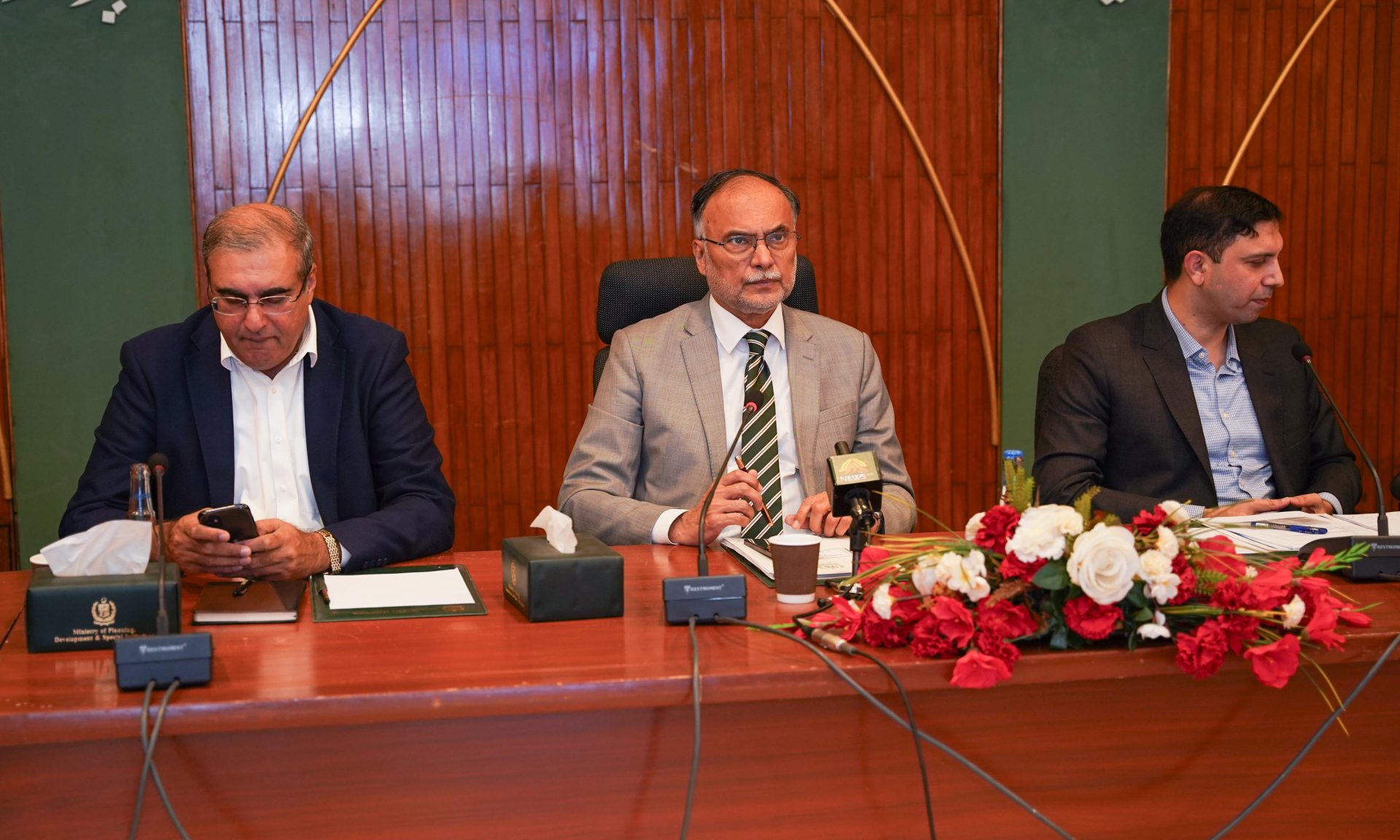 22 Nov 2024, Islamabad: Federal Minister for Planning, Development & Special Initiatives, Ahsan Iqbal, chaired a high-level consultative meeting on enhancing the efficiency of Karachi ports by improving hinterland connectivity here in Islamabad on Friday.
22 Nov 2024, Islamabad: Federal Minister for Planning, Development & Special Initiatives, Ahsan Iqbal, chaired a high-level consultative meeting on enhancing the efficiency of Karachi ports by improving hinterland connectivity here in Islamabad on Friday.
The meeting was attended by Secretary Planning Awais Manzur Sumra, Member Infrastructure Waqas Anwar, CEO of the Public Private Partnership Authority, and senior representatives from the Ministries of Maritime Affairs, Communications, Railways, Aviation Division, and Commerce Division.
During the meeting, Member Infrastructure Waqas Anwar presented a detailed briefing on improving port efficiency. He provided a progress update from the Ministry of Maritime Affairs regarding a committee constituted by the Prime Minister’s Office to address cross-cutting issues at Karachi Port.
He highlighted that Pakistan’s merchandise trade as a percentage of GDP stands at 26%, significantly lower than the global average of 44%. From 2015 to 2020, Pakistan’s ports handled over 3 million TEUs (twenty-foot equivalent units) of container traffic annually, with approximately two-thirds managed at Karachi’s three terminals and the remainder at Port Qasim.
He pointed out that rail access to Karachi Port is underutilized, with nearly all cargo transported via road, leading to congestion and environmental challenges. Existing rail facilities are insufficient for efficient goods transfer due to their limited capacity for loading and unloading operations.
Karachi Port faces significant road congestion due to truck curfews (6 a.m. to 11 p.m.), affecting traffic flow into and out of port areas. Port Qasim, on the other hand, benefits from better road connectivity (N-5 and M-9 via Eastern Bypass) but may face road access congestion by 2030 if rail connectivity is not improved.
To address these challenges, the Member Infrastructure proposed short- and long-term measures. Short-term measures include implementing 24/7 port operations while scheduling freight truck movements to reduce congestion. Freight trucks would use port gates only during pre-arranged schedules.
For long-term solutions, it was recommended to develop an elevated expressway as a priority project to ease road congestion. Simultaneous investments in rail infrastructure were also proposed to enhance up-country freight transport efficiency and reduce overall transportation costs. Both projects should progress concurrently to maximize long-term benefits.
After detailed discussions, Federal Minister Ahsan Iqbal emphasized the importance of resolving these challenges for national economic growth. He directed the formation of a committee comprising representatives from the Ministry of Planning, Port Qasim Authority, Ministry of Maritime Affairs, National Highway Authority (NHA), and Ministry of Railways. The committee has been tasked with reviewing the issues comprehensively and presenting a consensus-based solution within two weeks.
The Federal Minister reaffirmed the government’s commitment to strengthening port efficiency, boosting trade, and ensuring sustainable economic development.
Sub Editor: Ghufran